Stormont: NI secretary is granted power to cut pay
- Published
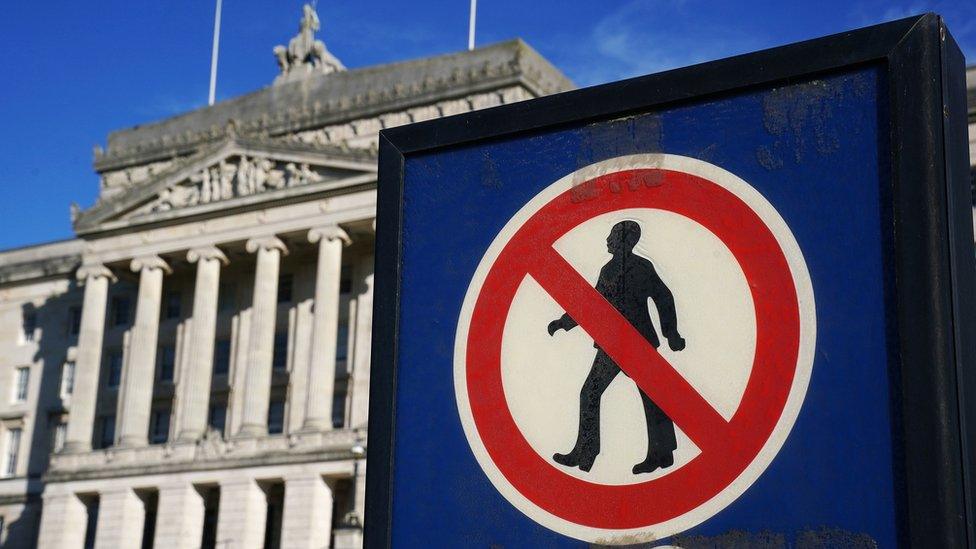
A bill to give the Northern Ireland secretary the power to cut Stormont assembly members' salaries is now law.
The Executive Formation Bill was fast-tracked after the government introduced it last month.
Chris Heaton-Harris now has the power to cut the pay of the 90 assembly members' (MLAs), however it is not clear when he will implement it.
Last week Mr Heaton-Harris said he would act rapidly to cut wages.
After the bill became law, he confirmed his intention to impose a reduction of 27.5%, or just over £14,000, reducing MLA incomes from £51,500 to £37,337.
The new law also means the secretary of state is now under a legal obligation to call a fresh Stormont election, which would take place no later than 13 April, if the institutions are not restored by mid-January.
The legislation was approved in the House of Lords on Monday night and received Royal Assent on Tuesday afternoon.
Mr Heaton-Harris said assembly members had been receiving full pay while failing to fulfil their full duties for more than 200 days and reducing their pay reflected the "work they are currently carrying out".
"This pay reduction is a necessary step when the people of Northern Ireland are tackling significant cost of living challenges and, after long-term mishandling of the NI public finances [by NI ministers] that has left a staggering £660m black hole, further protecting public finances," he added.
He urged parties to return to their roles in the devolved government.
Allow X content?
This article contains content provided by X. We ask for your permission before anything is loaded, as they may be using cookies and other technologies. You may want to read X’s cookie policy, external and privacy policy, external before accepting. To view this content choose ‘accept and continue’.

Northern Ireland has been without a functioning government since February as the Democratic Unionist Party (DUP) has refused to return to power-sharing in protest over the Northern Ireland Protocol.
Unionist politicians argue the post-Brexit trading arrangement undermines Northern Ireland's position in the UK.
It keeps the region aligned with some EU trade rules to ensure goods can move freely across the Irish land border.
Despite an assembly election in May - in which Sinn Féin won the largest number of seats - and four attempts to elect an assembly speaker, the DUP continues to refuse to nominate executive ministers.
A fifth attempt to elect a new speaker will be made on Wednesday.
Sinn Féin proposed a motion to bring it back to debate the cost-of-living crisis. It was also backed by the SDLP and Alliance.
The UK and EU remain in talks about the protocol, in the hope of getting a deal to suit both sides.
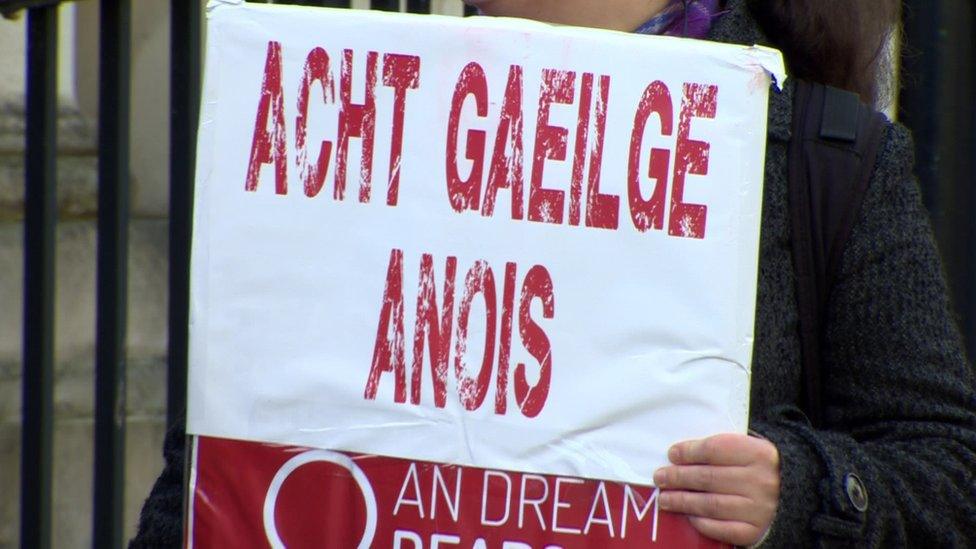
Another new law will give the Irish language official status
The culture, language and identity bill also received Royal Assent on Tuesday.
The new law will give the Irish language official status,, external allow the use of Irish in courts and see the appointment of Irish and Ulster Scots/Ulster British commissioners.
Irish language campaign group An Dream Dearg described the legislation's passage into law as an "historic day".
Related topics
- Published5 December 2022
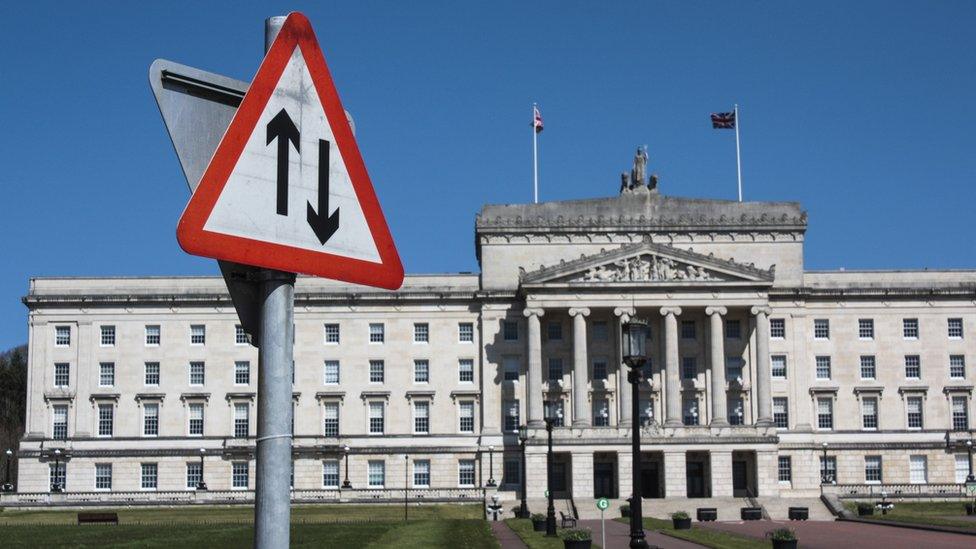
- Published26 October 2022
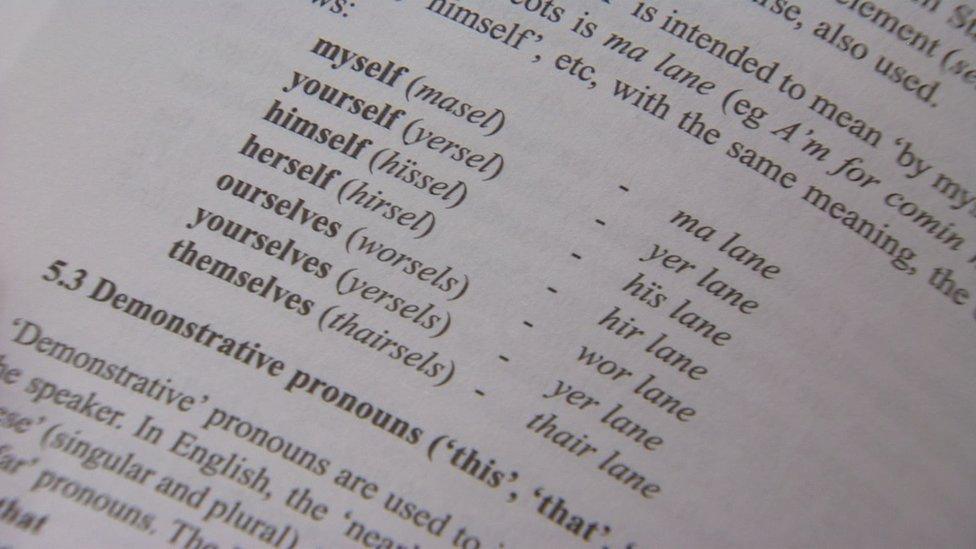
- Published29 November 2022
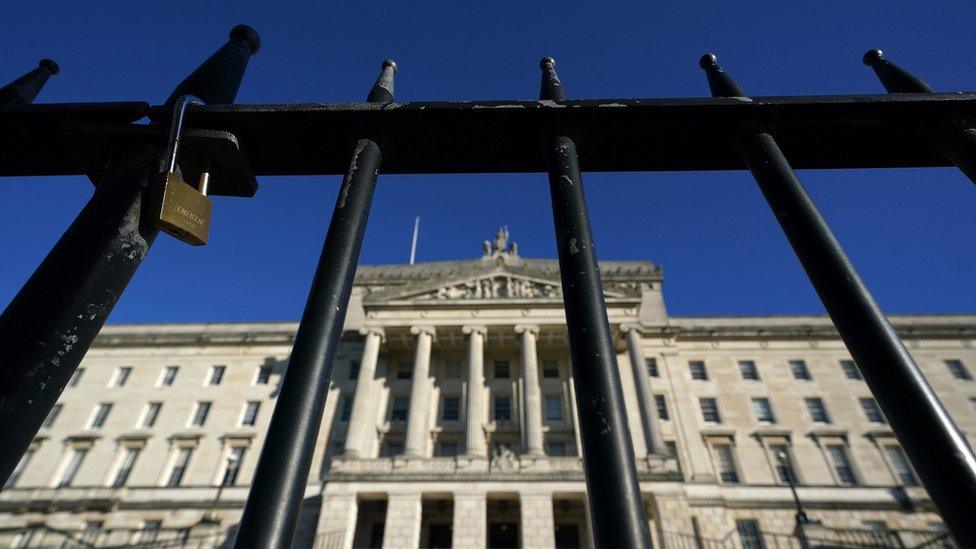
- Published21 November 2022
